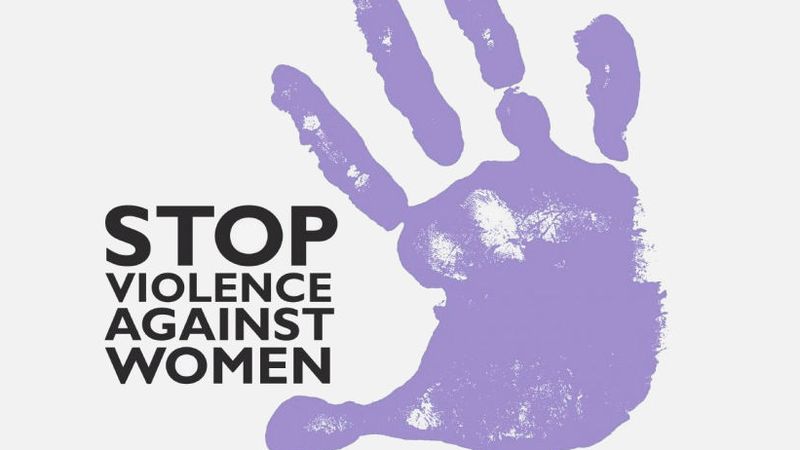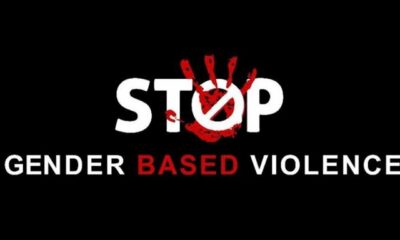News
South Africa’s Historic Shutdown Unites the Nation Against Gender-Based Violence

South Africa’s Historic Shutdown: A Nation Finally Says “Enough” to Gender-Based Violence
On 21 November, the country pauses, not in silence, but in defiance.
South Africa woke up on Thursday to a moment unlike any other in our democratic history, a nationwide shutdown led largely by women, but supported by millions more who are simply tired of living in a country where danger feels like a daily companion.
The message was painfully simple: stop killing us.
For decades, gender-based violence has shaped South African life in ways we often pretend not to see. But the numbers tell a story we can no longer ignore. According to the South African Police Service, 11 women are murdered every single day, roughly one every two and a half hours. Between April 2023 and March 2024, more than 5 500 women were killed.
And rape? A staggering 113 cases are reported every day, though experts warn the real figure is likely double or triple, due to fear, stigma and shame.
These aren’t statistics on a page; they are women who never made it home. They are daughters, breadwinners, caretakers, students, lovers, and friends. And on 21 November, South Africans shut the country down for them.
A Movement Led by Women, But Meant for Everyone
The Women For Change (WFC) shutdown was not just another march. It wasn’t a hashtag moment or a trending topic designed to fade with the news cycle. It was a full withdrawal of labour, paid and unpaid to show how deeply the country depends on women, yet continues to expose them to danger.
WFC called on women and LGBTQI+ citizens to avoid spending money, stay away from workplaces, and take part in a symbolic 15-minute lie-down at noon to honour the 11 women killed each day.
On social media, purple banners took over timelines. Streets across major cities echoed with chants and moments of silence. In workplaces that stayed open, empty chairs spoke louder than any placard.
This wasn’t a “women’s issue”. It was and is, a national emergency.
Understanding GBV: More Than Bruises and Headlines
South Africans often reduce GBV to horrifying murder cases that reach the news. But violence starts long before a crime scene tape goes up.
It begins with:
-
controlling behaviour,
-
humiliation,
-
verbal harassment,
-
economic manipulation,
-
sexual coercion,
-
or online stalking.
It begins with a boy taught that crying is weakness, that girls must be controlled, that anger is masculine. As GBV expert Professor Rachel Jewkes often repeats:
“Violence doesn’t begin with murder. It begins with entitlement.”
The World Bank and WHO echo this, pointing to power imbalances, harmful gender norms and generational trauma as key drivers.
South Africa cannot win this fight without raising emotionally intelligent boys and healing a society that normalised violence.
Public Figures Step In And Amplify the Crack in the Wall
The shutdown was fuelled by a wave of high-profile support rarely seen in social movements of this scale.
Springbok captain Siya Kolisi turned his social media purple, urging South Africans to wear the colour in solidarity.
Celebrities like Bonang Matheba, Lerato Kganyago, and global pop star Tyla followed, replacing their profile pictures and sharing urgent pleas.
Miss SA 2025, Qhawekazi Mazaleni, helped push a massive petition past one million signatures, declaring GBV a national disaster, something activists have demanded for years.
And then there was actor Sandile Mahlangu, whose unforgettable purple suit covered in the faces of murdered women resurfaced online, once again forcing the country to confront the real human cost of silence.
Even beyond South Africa’s borders, the movement resonated. Miss Universe SA Melissa Nayimuli, currently in Thailand, shared a powerful message of solidarity, reminding the world that GBV is not a South African problem it’s a global one.
The Human Cost Can No Longer Be Carried Quietly
Gender-based violence leaves more than bruises. Survivors often carry lifelong trauma, including PTSD, depression, and chronic health issues. Many lose jobs, housing, financial stability, and education opportunities.
It breaks families.
It destroys communities.
It costs the economy billions.
But worst of all, it erases futures of women who should still be alive.
That is why the shutdown matters. Not just as a protest, but as a reckoning.
How South Africans Can Help, Starting Today
Ending GBV cannot be outsourced to activists or government. It requires society-wide participation.
Here’s where the change begins:
-
Educate yourself and others.
Understand the signs of abuse and share resources. -
Speak up, especially men.
Challenge harmful jokes, attitudes, and behaviours. -
Support survivors.
Believe them. Listen. Help them find professional support. -
Demand accountability.
Advocate for stronger laws, better policing, and improved survivor services. -
Raise the boy child differently.
Teach empathy, respect, and emotional intelligence from day one.
As Somizi Mhlongo said during the shutdown campaign:
“We are more powerful together than apart.”
A National Turning Point
South Africa is tired, tired of burying women, tired of watching children grow up without mothers, tired of being called the rape capital of the world.
On 21 November, the country chose not to move.
Not in surrender, but in resistance.
A single day won’t end GBV. But it marks a line in the sand. A promise from citizens that women’s lives will no longer be sacrificed to a system that protects abusers and excuses violence.
South Africa has spoken and this time, the world heard us.
Enough.
{Source: IOL}
Follow Joburg ETC on Facebook, Twitter , TikTok and Instagram
For more News in Johannesburg, visit joburgetc.com



























